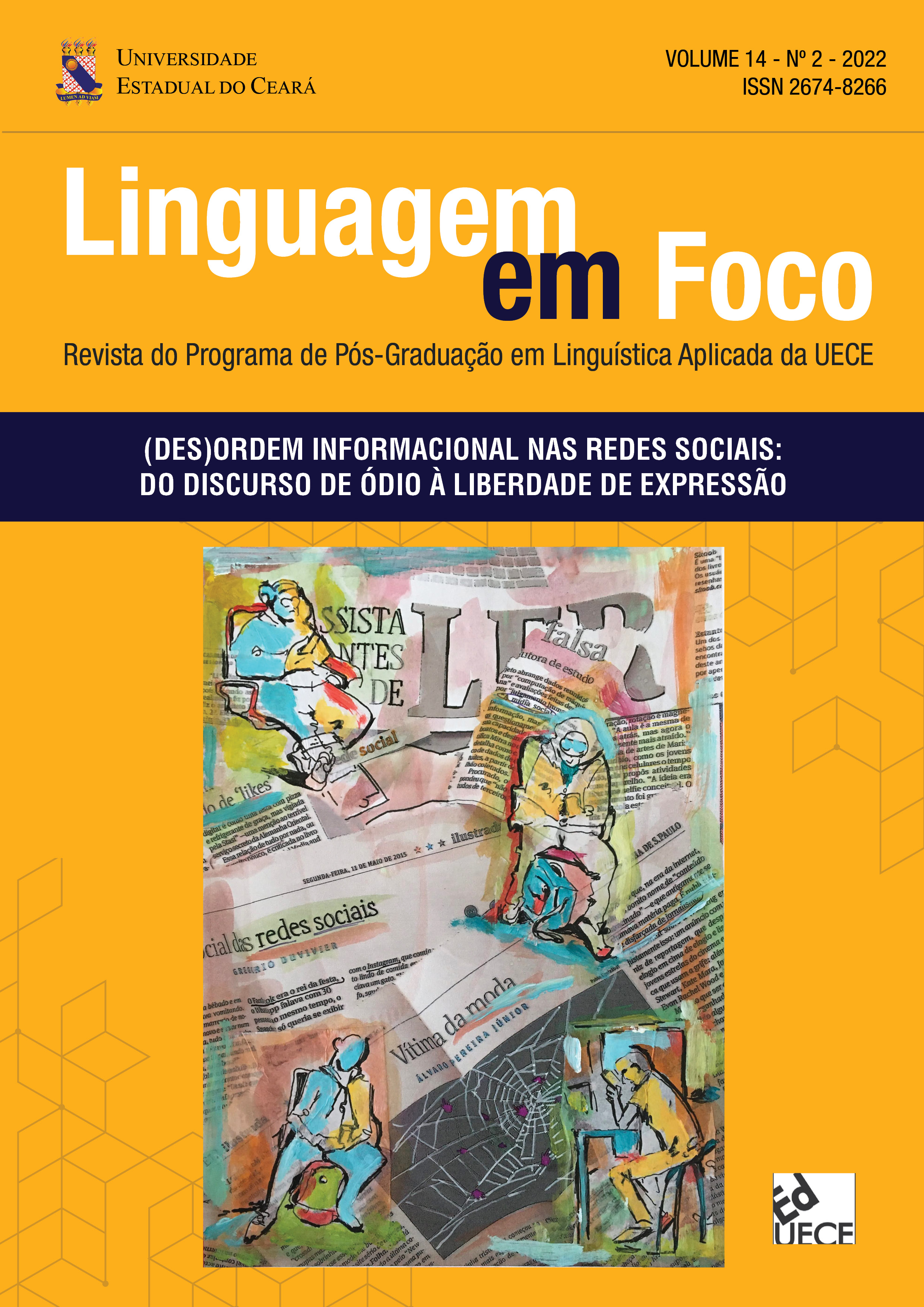Da utopia da participação global na Web 2.0 às fake news nas redes sociais
Uma discussão epistemológica para uma educação crítica
DOI:
https://doi.org/10.46230/2674-8266-14-9347Keywords:
Web 2.0, Fake news, Redes sociais, Educação críticaAbstract
This article aims to provide an epistemological discussion on fake news, by understanding it not only as false news, but, more widely, as false information arising from deliberate actions of disinformation, driven by economic, political, ideological, social and political interests, disseminated in print, television, radio and digital media (online), especially in social networks on the Internet. In order to do so, I discuss the idea of participation on the internet, based on the concept of Web 2.0, by placing it in the light of the concept of multisynopticon. Then, I show how sociotechnical elements of the Internet social networks, when involving human and non-human agents, are more complex than traditional mass media, and how this contributes to the production and proliferation of fake news. Finally, I presente some comments about what I understand as critical education to deal with fake news in the current context, thus seeking to display some alternatives that might be feasible and make us “hope” for the future.
Downloads
References
BAUMAN, Z. Globalização: as consequências humanas. Tradução: Marcus Penchel. Rio de Janeiro: Zahar, 1999.
BIESTA, G. Learner, Student, Speaker: Why it matters, how we call those we teach. Educational Philosophy and Theory, v. 42, 2010, pp. 540-552.
BLOMMAERT, J. “Political Discourse in Post-Digital Societies”. Trabalhos em Linguística aplicada. vol. 59 (1). Campinas Jan./Apr. 2020, pp. 390-403. Disponível em: https://www.scielo.br/j/tla/a/Qz3ZHtchxfwRhWdK5V6dvCF/?format=pdf&lang=en. Acesso em: 07 jan. 2021.
BRUNS, A. “Towards Produsage: futures for user-led content production”. In: International Conference On Cultural Attitudes Towards Technology And Communication. Perth: Murdoch University, 2006.
BUCCI, Eugênio. A Superindústria do Imaginário: como o capital transformou o olhar em trabalho e se apropriou de tudo que é visível, Belo Horizonte: Autêntica, 2021.
FOUCAULT, M. Vigiar e punir: nascimento da prisão. Tradução: Raquel Ramalhete. Petrópolis, Vozes, 1987.
FREIRE, P. Education as the practice of freedom. Tradução de M. B. Ramos. In: Education for critical consciousness. New York: The Continuum Publishing, 1982. pp. 1-84.
LÉVY, P. Ciberdemocracia. Tradução: Alexandre Emilio. Lisboa: Instituto Piaget, 2003.
MATHIESEN, T. “The viewer society: Michel Foucault’s ‘panopticon’ revisited”. Theoretical Criminology. V 1(2), London, Sage, 1997, pp. 215-232.
MCLUHAN, M. A galáxia de Gutenberg: a formação do homem tipográfico. Tradução: de Leônidas Gontijo de Carvalho e Anísio Teixeira. São Paulo: Editora Nacional, Editora da USP, 1972.
MONTE MÓR, W. “Crítica e Letramentos Críticos: Reflexões Preliminares”. In: C H Rocha e R F Maciel (Orgs). Língua Estrangeira e Formação Cidadã: Por entre Discursos e Práticas. Campinas: Ed Pontes, 2015, pp. 31-50.
NIETZSCHE, F. Obras incompletas. Coleção os pensadores. São Paulo: Abril cultural. 2005.
O’REILLY, T. What is Web 2.0? Design patterns and business models for the next generation of software. 2005. Disponível em: www.oreillynet.com/pub/a/oreilly/tim/news/2005/09/30/what-is-web-20.html. Acesso em 3 April, 2018.
PINHEIRO, P. escrita colaborativa por meio do uso de ferramentas digitais: ressignificando a produção textual no contexto escolar. Calidoscópio (Unisinos), v. 9, p. 224-237, 2011.
PINHEIRO, P. A era do “multissinóptico”: que (novos) letramentos estão em jogo? Educação em Revista (UFMG. Impresso), v.30, pp.137-160, 2014. Disponível em https://www.scielo.br/j/edur/a/ypsFfjb53py3bjmSqFFtcfK/?lang=pt. Acesso em:19 abr. 2020.
PINHEIRO, P. Pesquisa em contextos de ensino e aprendizagem por meio do uso da internet: uma ecologia de saberes. Educação e Pesquisa, 44, 2018, pp. 1-15. Disponível em: https://www.scielo.br/j/ep/a/m9FwX6cnRtP6BZmZc4g9Z6K/. Acesso em: 20/04/2020.
SINGH, G. The Death of Web 2.0: Ethics, Connectivity and Recognition in the Twenty-First Century. Abingdon: Routledge, 2019.
ZUBOFF, S. The Age of Surveillance Capitalism: The Fight for a Human Future at the New Frontier of Power. New York: Public Affairs, 2019.
Published
How to Cite
Issue
Section
License
Copyright (c) 2022 Petrilson Pinheiro

This work is licensed under a Creative Commons Attribution 4.0 International License.
Authors who publish in Linguagem em Foco Scientific Journal agree to the following terms:
- Authors retain the copyright and grant the journal the right of first publication. The articles are simultaneously licensed under the Creative Commons Attribution License which allows sharing the work with an acknowledgement of its authorship and initial publication in this journal.
- The concepts issued in signed articles are the absolute and exclusive responsibility of their authors. Therefore, we request a Statement of Copyright, which must be submitted with the manuscript as a Supplementary Document.
- Authors are authorized to make the version of the text published in Linguagem em Foco Scientific Journal available in institutional repositories or other academic work distribution platforms (ex. ResearchGate, Academia.edu).





























